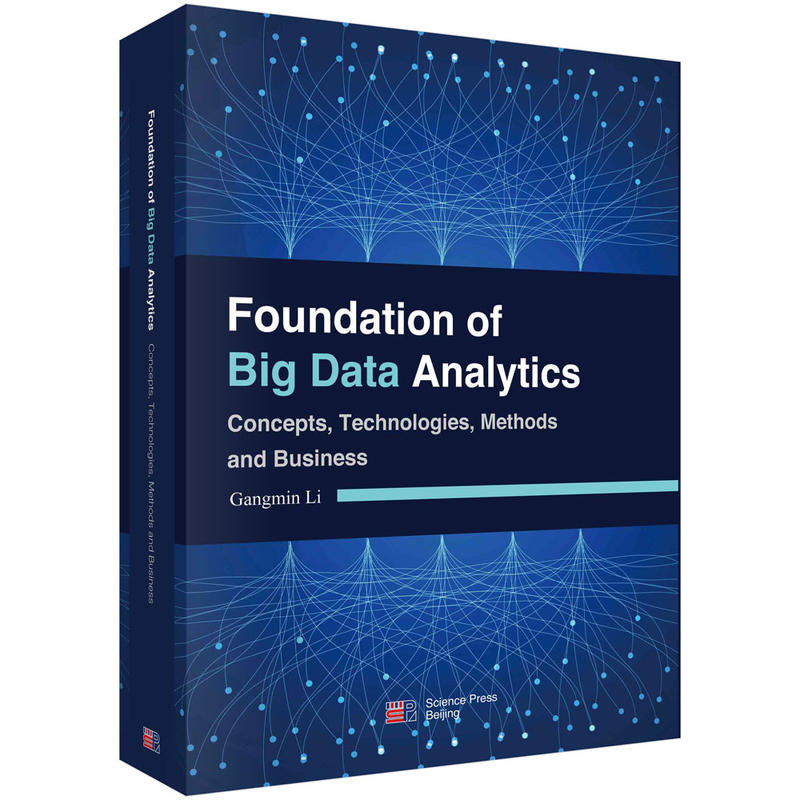
大数据分析基础:概念.技术.方法和商务(英文版)

- ISBN:9787030581488
- 装帧:一般胶版纸
- 册数:暂无
- 重量:暂无
- 开本:其他
- 页数:632
- 出版时间:2017-03-01
- 条形码:9787030581488 ; 978-7-03-058148-8
内容简介
李刚民著的《大数据分析基础(概念技术方法和商务)(英文版)》涵盖了大数据分析的四个基本方面:概念和基础,平台和工具,方法和算法,以及社会问题和*佳实践。
目录
作者简介
李刚民,Dr.Gangmin Li is a Senior Researcher in the Research Institute of Big Data Analytics (RIBDA) and an Associated Professor in the Department of Computer Science and Software Engineer at Xi'an Jiaotong-Liverpool University. He has over 35 years of research and teaching experience in 4 British Universities and 2 Chinese Universities. His research interests include Knowledge Engineering (KE), Distributed Artificial Intelligence (DAI), Distributed Systems, Grid and Clouds Computing and Big Data Analytics.He has over 100 publications and wide industrial connections and research collaborations.
-

MySQL数据库案例教程
¥34.9¥49.8 -

Java语言程序设计
¥66.5¥95.0 -

计算
¥92.2¥128.0 -

软件工程导论——方法、工具和案例(题库·微课视频版)
¥34.9¥49.8 -

C语言程序设计
¥31.9¥45.5 -

C程序设计(第五版)
¥34.3¥49.0 -

KUKA(库卡)工业机器人编程与操作
¥59.3¥79.0 -

用户增长方法论:找到产品长盛不衰的增长曲线
¥60.5¥89.0 -

删繁就简-单片机入门到精通
¥27.3¥39.0 -

中文版PHOTOSHOP 2024完全自学教程
¥83.9¥119.8 -

智能控制与强化学习先进值迭代评判设计
¥104.9¥139.8 -

实战数据可视化Excel篇
¥27.4¥49.8 -

人工智能应用基础(第2版)
¥32.7¥46.0 -

有限元基础与COMSOL案例分析
¥83.9¥119.8 -

企业AI之旅
¥43.5¥79.0 -

系统集成项目管理工程师教程(第3版
¥97.3¥139.0 -

可编程控制器系统应用编程(中级)
¥44.9¥59.8 -

Blender超级学习手册
¥83.9¥119.9 -

人工智能极简史
¥49.6¥68.0 -

利用PYTHON进行数据分析(原书第3版)
¥116.2¥149.0










